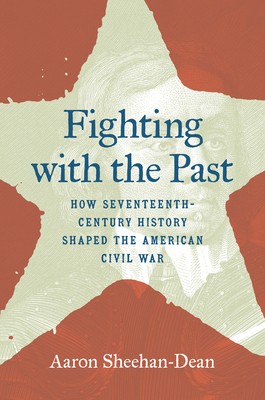
- We will send in 10–14 business days.
- Author: Aaron Sheehan-Dean
- Publisher: University of North Carolina Press
- ISBN-10: 1469690756
- ISBN-13: 9781469690759
- Format: 15.6 x 23.4 x 1.3 cm, softcover
- Language: English
- SAVE -10% with code: EXTRA
Reviews
Description
Civil War Americans, like people today, used the past to understand and traverse their turbulent present. As Aaron Sheehan-Dean reveals in this fascinating work of comparative intellectual history, nineteenth-century Americans were especially conversant with narratives of the English Civil Wars of the 1600s. Northerners and Southerners alike drew from histories of the English past to make sense of their own conflict, interpreting the events of the past in drastically different ways. Confederates, for example, likened themselves to England's Royalists (also known as Cavaliers), hoping to preserve a social order built on hierarchy and claiming the right to resist what they perceived as radicals' assaults on tradition. Meanwhile, conservative Northerners painted President Lincoln as a tyrant in the mold of English Lord Protector Oliver Cromwell, while radical abolitionists drew inspiration from Cromwell and sought to rebuild the South as Cromwell had attempted with Ireland.
Surveying two centuries of history-making and everyday engagement with historical thought, Sheehan-Dean convincingly argues that history itself was a battlefront of the American Civil War, with narratives of the past exercising surprising agency in interpretations of the nineteenth-century present. Sheehan-Dean's surprising discoveries provide an entirely fresh perspective on the role of historical memory in the Civil War era and offer a broader meditation on the construction and uses of history itself.
EXTRA 10 % discount with code: EXTRA
The promotion ends in 18d.01:30:24
The discount code is valid when purchasing from 10 €. Discounts do not stack.
- Author: Aaron Sheehan-Dean
- Publisher: University of North Carolina Press
- ISBN-10: 1469690756
- ISBN-13: 9781469690759
- Format: 15.6 x 23.4 x 1.3 cm, softcover
- Language: English English
Civil War Americans, like people today, used the past to understand and traverse their turbulent present. As Aaron Sheehan-Dean reveals in this fascinating work of comparative intellectual history, nineteenth-century Americans were especially conversant with narratives of the English Civil Wars of the 1600s. Northerners and Southerners alike drew from histories of the English past to make sense of their own conflict, interpreting the events of the past in drastically different ways. Confederates, for example, likened themselves to England's Royalists (also known as Cavaliers), hoping to preserve a social order built on hierarchy and claiming the right to resist what they perceived as radicals' assaults on tradition. Meanwhile, conservative Northerners painted President Lincoln as a tyrant in the mold of English Lord Protector Oliver Cromwell, while radical abolitionists drew inspiration from Cromwell and sought to rebuild the South as Cromwell had attempted with Ireland.
Surveying two centuries of history-making and everyday engagement with historical thought, Sheehan-Dean convincingly argues that history itself was a battlefront of the American Civil War, with narratives of the past exercising surprising agency in interpretations of the nineteenth-century present. Sheehan-Dean's surprising discoveries provide an entirely fresh perspective on the role of historical memory in the Civil War era and offer a broader meditation on the construction and uses of history itself.


Reviews